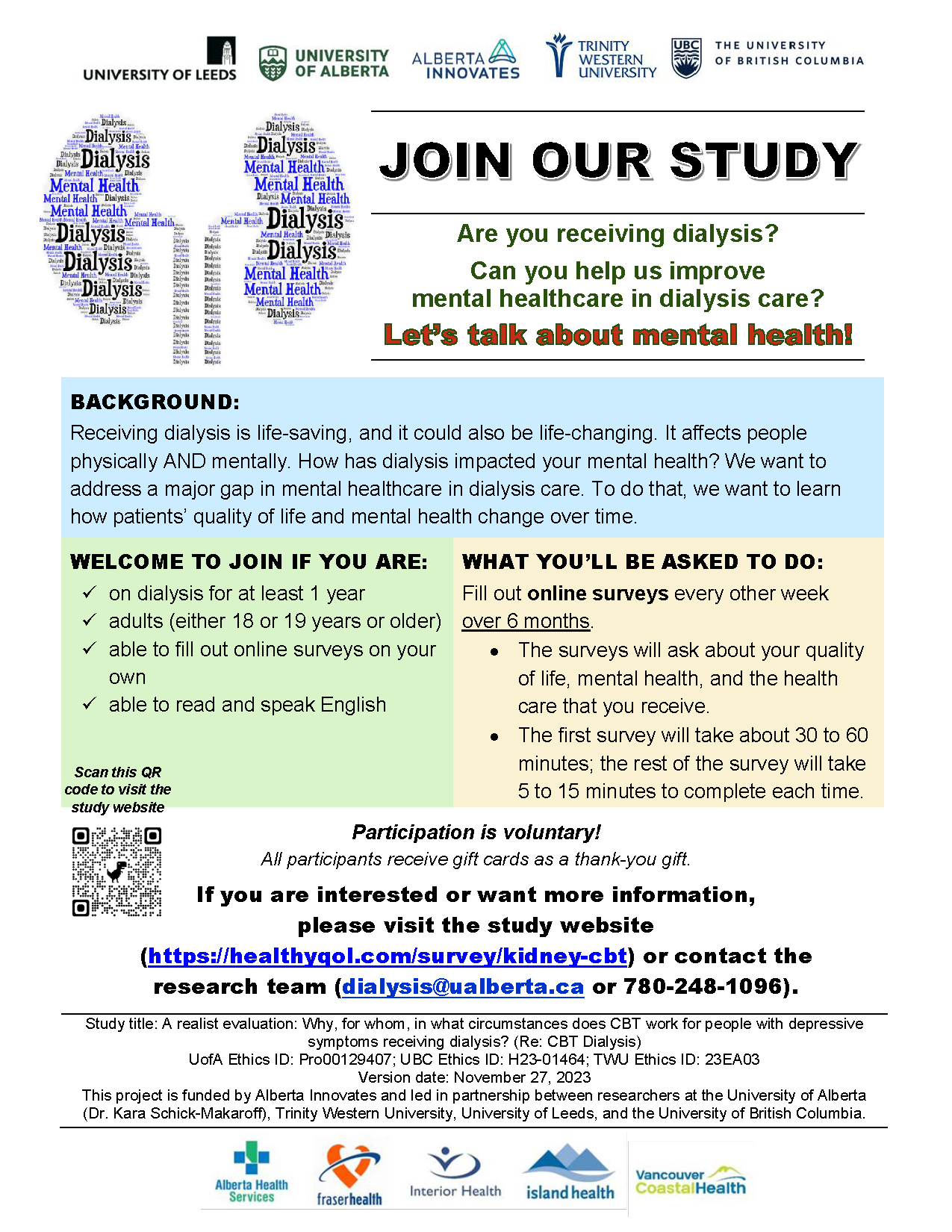How has dialysis impacted your mental health? A realist evaluation: Why, for whom, in what circumstances does CBT work for people with depressive symptoms receiving dialysis?

Overview
Although common amongst dialysis patients, depression is rarely treated. We know Cognitive Behavioural Therapy (CBT) is helpful form of therapy, but how does it work in dialysis care? Why does it help some, but not all? Who benefits the most? This study will answer these questions to help dialysis programs move towards making a solution available to patients.
Participant Commitment
Participants will be asked to fill out online surveys regularly over 6 months. The surveys will ask about their quality of life, mental health, and health care. The first survey takes approximately 30 – 60 minutes to complete. The following surveys may take 5 – 15 minutes to complete.
Participants who complete the surveys will receive gift cards as a thank-you for their time and effort.
Eligibility
- On dialysis for at least 1 year
- Adults (at least 18 or 19 years and older)
- Able to fill out online surveys on your own
- Able to read and speak English


